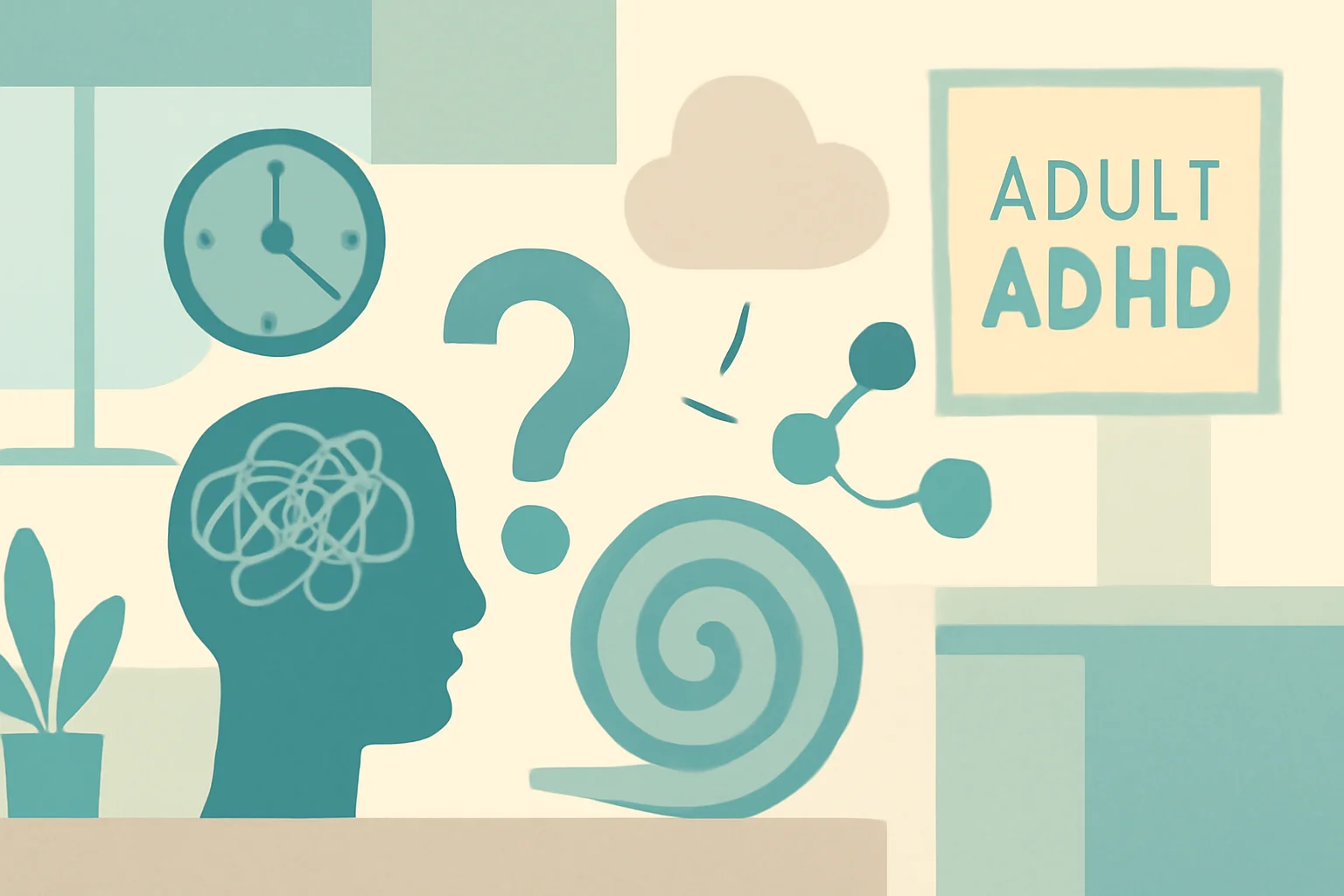
Symptoms of Adult ADHD: How to Recognize and Manage It?
The adult ADHD, or Attention Deficit Hyperactivity Disorder, is often an underdiagnosed issue that affects many adults’ lives. For individuals diagnosed with ADHD in childhood, symptoms may persist into adulthood, but in many cases, adults do not recognize that they are affected. Society often focuses on children, leading to the suffering of adults being overlooked. The symptoms of adult ADHD often differ from those experienced in childhood, making it essential to be aware of these signs to better understand the issue and support those affected.
Adult ADHD can manifest in various forms: attention deficits, hyperactivity, and impulsivity are all characteristic symptoms. These symptoms can impact not only workplace performance but also personal relationships and overall quality of life. Adults living with ADHD often feel frustrated and hopeless as they struggle to manage everyday challenges. Below, we will examine the main symptoms of adult ADHD in more detail to raise awareness of the issue and support the understanding of those affected.
Symptoms of Attention Deficit
One of the most distinctive symptoms of adult ADHD is attention deficit. Affected individuals often find it challenging to maintain their focus for extended periods, which can cause problems in various situations. For instance, while completing tasks at work, they can easily get distracted, reducing their performance. These adults tend to be inattentive even during the simplest tasks and frequently make mistakes due to not paying enough attention to details.
Attention deficit manifests not only at work but also in daily life. For example, adults often forget important meetings, obligations, or even their daily to-do lists. This forgetfulness often leads to frustration, as those affected disappoint themselves. Individuals with ADHD frequently experience that their attention is easily diverted by environmental stimuli, whether it be noises, conversations, or even their phones.
Additionally, adults often struggle to prioritize their tasks, which exacerbates the situation. For those with ADHD, ranking tasks can be challenging, leading to neglecting the most important things while focusing on less critical matters. This disorder can result in decreased workplace performance and hinder career advancement.
Symptoms of Impulsivity
Impulsivity is also a significant symptom characterizing adult ADHD. Adults living with ADHD often find it difficult to control their impulsive behavior, which can lead to various problems in daily life. As a result of impulsive decision-making, those affected may be prone to reckless actions, such as sudden spending or making decisions that they later regret.
Impulsivity can manifest not only in financial areas but also in personal relationships. Affected individuals often say things they later regret or do not think through the consequences before acting. This behavior can create tension in relationships, as those around them may struggle to cope with unexpected reactions. Impulsive behavior can also contribute to social isolation, as individuals with ADHD often feel that they do not fit into situations, leading them to avoid social events.
Another aspect of impulsivity is impatience, which is also typical of adult ADHD. Affected individuals often cannot wait for things to fall into place, leading to stressful situations. People around them often do not understand why they react so suddenly, which can further increase tension in relationships.
Symptoms of Hyperactivity
Although hyperactivity may not be as evident in adult ADHD as it is in children, it is still present. Hyperactive adults often feel the need to be in constant motion, making it difficult for them to engage in calm, sedentary work. This behavior often results in decreased workplace performance, as those affected cannot concentrate on their tasks and frequently seek activities that allow them to move.
Hyperactivity may manifest as constant leg movement, sudden standing up, or interrupting conversations. Individuals with ADHD often feel they cannot help but move, which can be distracting for those around them. This behavior can be problematic not only in the workplace but also in social relationships, as hyperactive adults often cannot ignore the stimuli around them, making it challenging to continue conversations.
As a result of hyperactivity, many adults struggling with ADHD may experience anxiety and stress, as they find it difficult to keep up with the expectations of their environment. This stress can further exacerbate attention deficits and impulsivity, creating a vicious cycle. Individuals with ADHD often feel alone, as their surroundings may not always understand why they behave this way.
Recognizing and treating adult ADHD is an essential step toward improving the quality of life for those affected. Increasing awareness and providing appropriate support can help manage symptoms and ease daily life.
**Warning:** This article does not constitute medical advice. Always consult your doctor or a professional for health issues.

